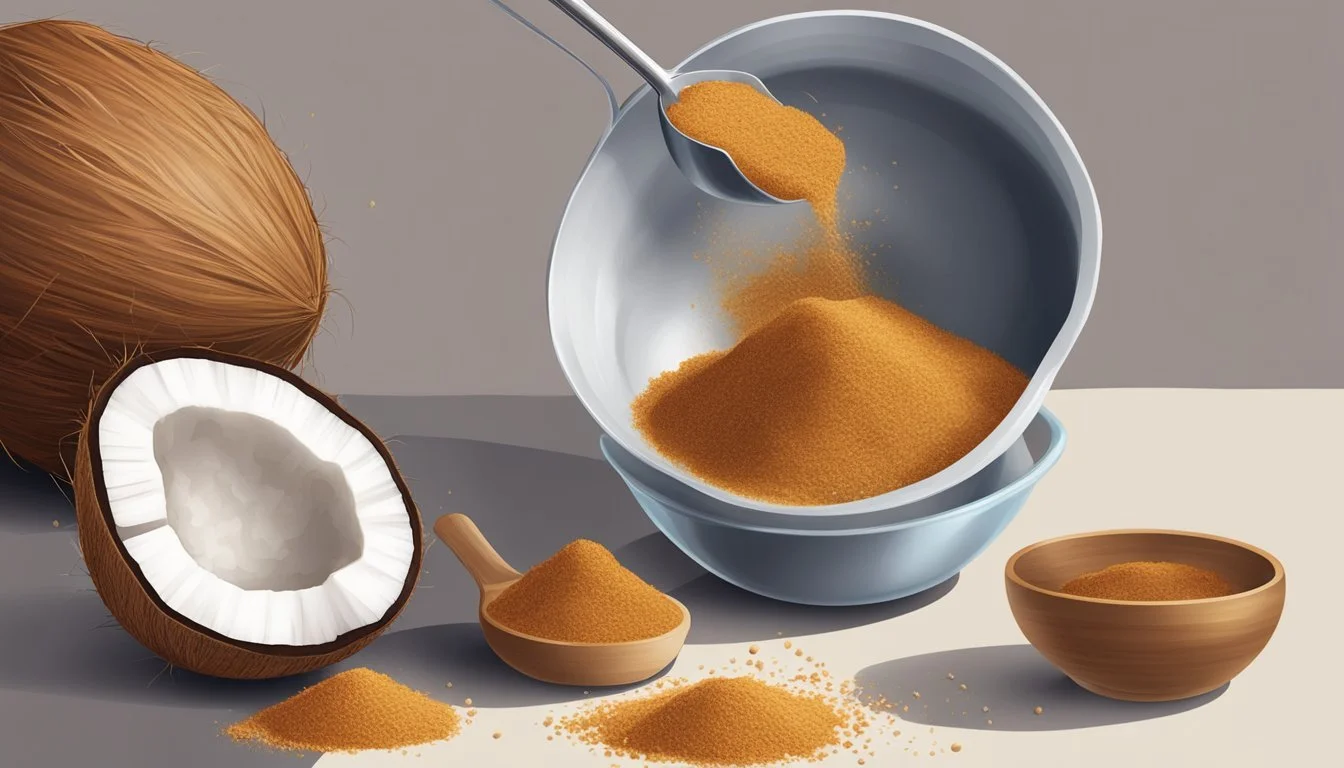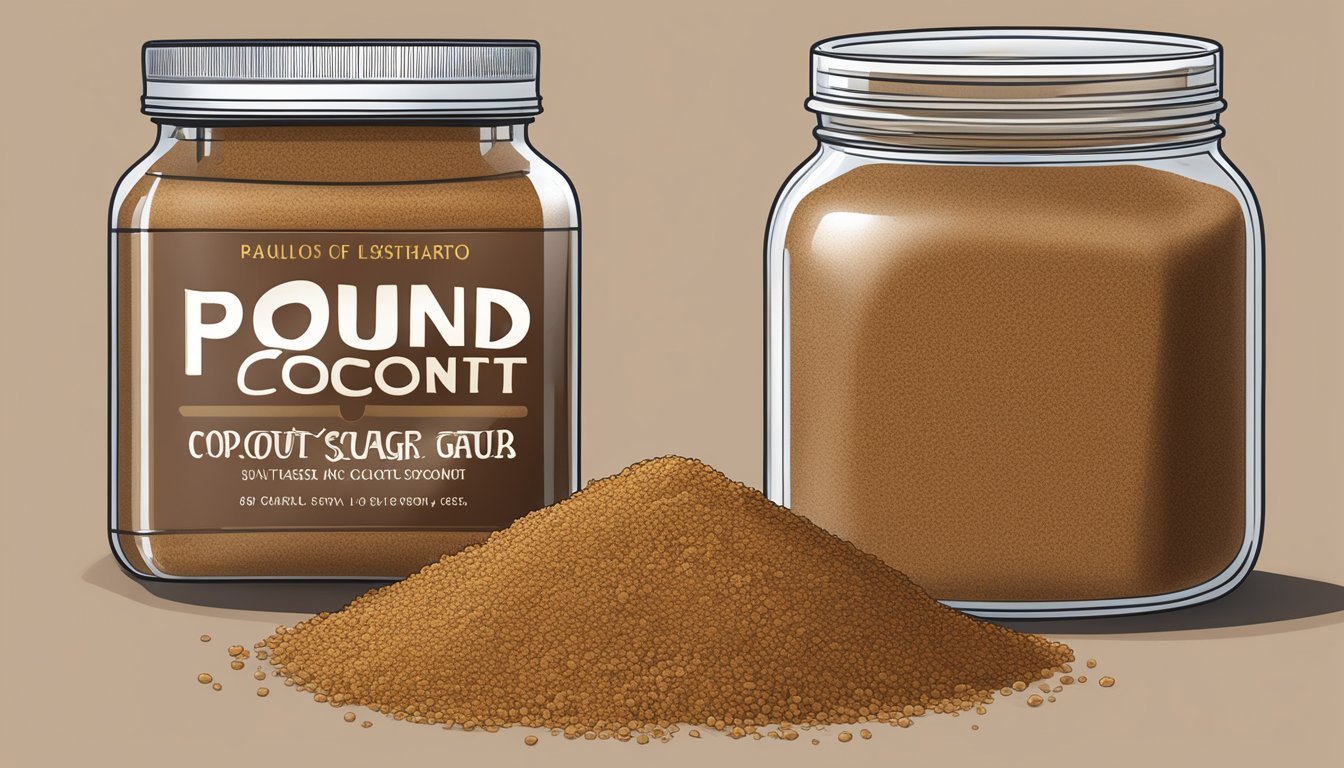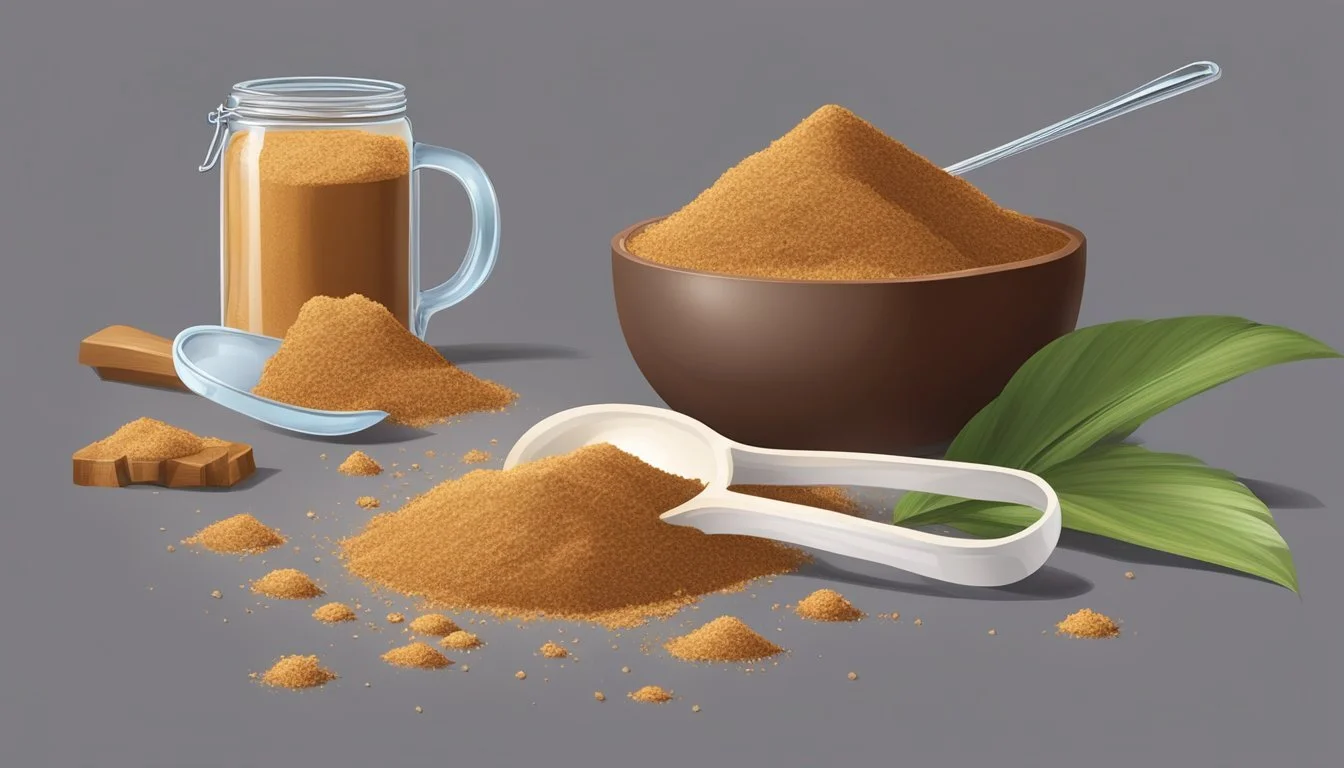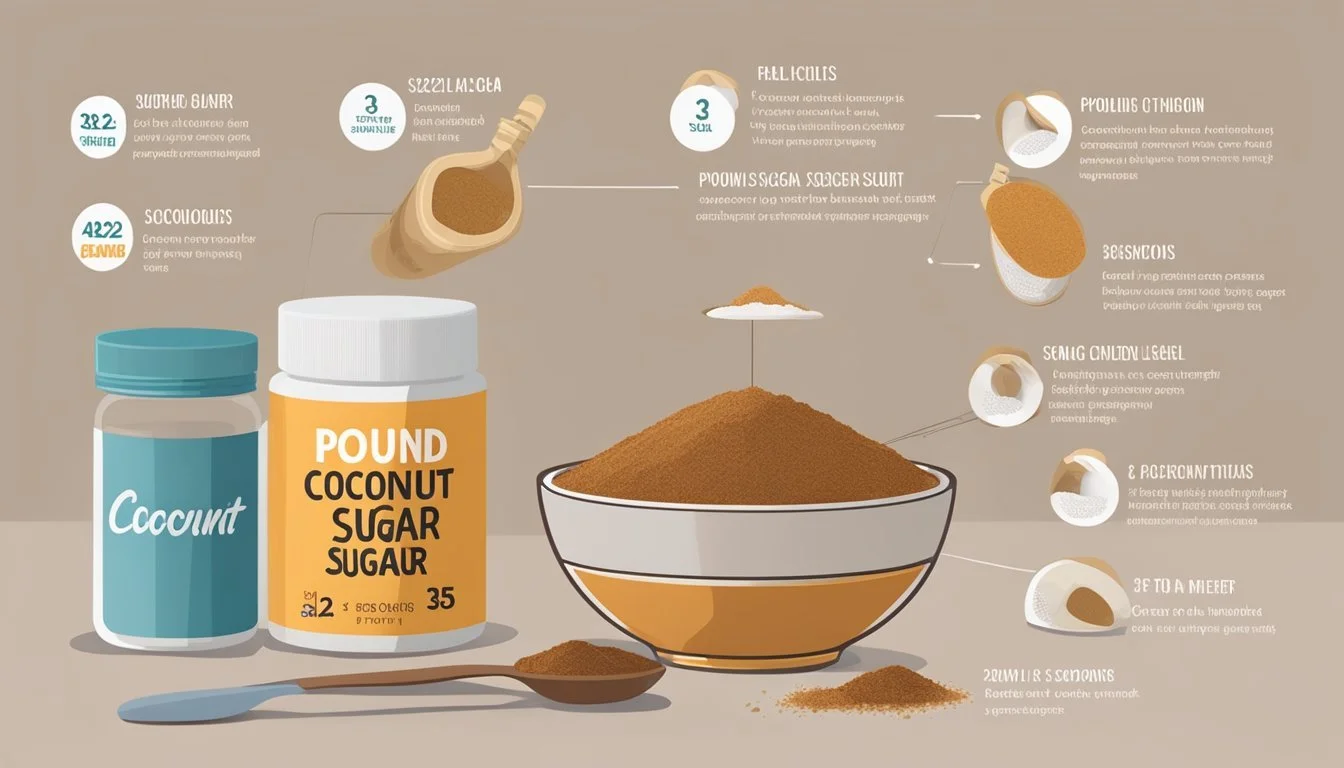How Many Tablespoons in a Pound of Coconut Sugar
Accurate Measurement Guide
In the culinary arts, precision in measurement is paramount, particularly in baking where the ratio of ingredients can affect the texture and taste of the final product. Coconut sugar, an increasingly popular alternative sweetener, follows the same rules of measurement as other granulated sugars. When converting the weight of coconut sugar to volume, bakers and cooks often need to know how many tablespoons there are in a pound of coconut sugar to ensure their recipe's accuracy.
The conversion ratio for granulated sugar from pounds to tablespoons can serve as a guide for coconut sugar, considering their similar consistency and granularity. Typically, one pound of granulated sugar equates to approximately 36.28739 tablespoons. Given that coconut sugar can substitute for granulated sugar in most recipes, it's reasonable to apply this conversion ratio when measuring coconut sugar in the absence of a specific one.
It is equally important to remember that the exact number may vary slightly based on factors such as humidity and temperature, which can affect the density and therefore the volume of sugar. Therefore, one must account for these potential variances when measuring ingredients for consistent baking results.
Understanding Weights and Measures
When converting weight to volume in the kitchen, one needs to consider the density of the ingredient and the measurement systems involved, such as the US customary system and the imperial system. Conversion accuracy is vital for recipe success, especially in baking.
Weight to Volume Conversion
Weight is a measure of how heavy something is. Common units of weight in the US customary system are ounces and pounds, while the imperial system uses ounces and pounds as well. However, there are slight differences in the actual mass that these units represent in the two systems. Volume is how much space a substance occupies, typically measured in teaspoons, tablespoons, and cups in culinary settings. With the varying density of ingredients, one cannot convert weight to volume using a universal conversion rate. For example, a pound of coconut sugar, which is less dense than water, occupies a different volume compared to a pound of water. The most appropriate method to convert weight to volume is to use the specific ingredient's density.
For coconut sugar, if one uses the average density of 0.7 g/mL for the conversion, the calculation is as follows:
[ \text{pounds} = \frac{\text{tablespoons} \times \text{density (g/mL)}}{453.592 \text{(grams per pound)}} ]
The conversion from tablespoons to pounds can then be calculated with this formula, and vice versa, considering that 1 tablespoon is approximately 14.7 mL.
Importance of Measurement Accuracy
Accurate measurements are crucial in cooking and baking to ensure consistency, taste, and texture. Using the correct units and tools, like a kitchen scale for weight (in grams or kilograms) and measuring spoons for volume, eliminates guesswork and reduces the risk of recipe failure. One should be cognizant that a small deviation in measuring ingredients like coconut sugar can result in significant differences in the outcome. The accuracy becomes even more critical when scaling recipes up or down where the ratio of ingredients to each other must remain consistent.
Conversion Fundamentals
When converting between measurements, accuracy is key. The reader needs to understand that conversion between tablespoons and pounds depends on the density of the ingredient and the precision of the conversion factors provided.
Tablespoons to Pounds
One must consider the specific ingredient to convert tablespoons to pounds accurately. For coconut sugar, which has a similar density to granulated sugar, a standard conversion is applicable.
Table: Conversion from Tablespoons to Pounds for Coconut Sugar
Tablespoons (tbsp) Coconut Sugar (pounds) 1 0.028 2 0.056 3 0.084 4 0.113
Note: The above values are approximations and may vary slightly depending on the precise density of the coconut sugar.
Pounds to Tablespoons
Conversely, to convert pounds to tablespoons, one multiplies the weight in pounds by the number of tablespoons in one pound.
Table: Conversion from Pounds to Tablespoons for Coconut Sugar
Pounds (lbs) Coconut Sugar (tablespoons) 1 36.28739 2 72.57478 3 108.86217 4 145.14956
Formula: tablespoons = pounds × conversion factor (specific to coconut sugar)
It is important that these conversions are used as guides, with the understanding that a pound measures weight, and a tablespoon measures volume. Therefore, density affects the conversion.
Specifics of Coconut Sugar
In examining coconut sugar, it's pertinent to compare its characteristics to other sweeteners and to dissect its nutritional profile. Derived from the sap of the coconut palm tree, this natural sugar offers a different experience in terms of taste and health impact.
Coconut Sugar vs Other Sugars
Taste: Coconut sugar has a distinct flavor profile, differentiating it from ordinary table sugar. It presents a caramel-like taste that can enhance the flavor complexity of baked goods and beverages.
Glycemic Index (GI): The Glycemic Index of coconut sugar sits at approximately 35, which is lower than table sugar's GI that ranges between 60 and 65. The lower GI implies a slower rise in blood glucose levels when coconut sugar is consumed, potentially making it a more suitable option for those managing their blood sugar.
Health and Nutrition Profile
Nutrition Facts: A tablespoon of coconut sugar typically contains:
Calories: 45
Fat: 0 g
Carbohydrates: 12 g
Sugar: 12 g
Fiber: 0 g
Protein: 0 g
These figures indicate that while coconut sugar does have calories and carbohydrates in the form of sugars, it does not contain fat, fiber, or protein.
Minerals: Compared to table sugar, coconut sugar contains trace amounts of vitamins and minerals, such as vitamin C, iron, potassium, and calcium. This nutrient content contributes to its profile as being more nutrient-rich than regular table sugar.
Baking Considerations
When incorporating coconut sugar into your baking endeavors, it's crucial to consider how this ingredient interacts with other components and how it might require adjustments to a recipe. Precision in measuring and understanding the properties of coconut sugar compared to alternatives will lead to successful outcomes.
Adjusting Recipes
Coconut sugar's granularity and moisture content can differ from that of traditional white sugar, which means bakers may need to tweak their recipes to achieve the desired consistency and sweetness. It's particularly important when dealing with varying flour types like all-purpose flour, cake flour, bread flour, and pastry flour, as each has different protein content that interacts with sugars in unique ways.
Volume Conversions: A common conversion bakers should know is that 1 pound of coconut sugar is approximately equal to 2 1/4 cups. However, since weights can vary, it's advisable to use a kitchen scale for accurate measurement.
Baking Powder and Baking Soda: These leavening agents may require adjustments, as coconut sugar can affect the rise of baked goods. Recipes that use baking powder or baking soda should be modified if the batter or dough appears too dense.
Alternatives to Coconut Sugar in Baking
Bakers may consider alternatives to coconut sugar, each bringing its own characteristics to the final baked good. In recipes where coconut sugar is not suitable or available, here are some alternatives with their necessary volume-to-weight conversions for easy substitution:
Granulated White Sugar: Typically finer than coconut sugar, it is a straight swap by volume but not by weight. One pound of granulated sugar is equivalent to approximately 2 1/4 cups.
Brown Sugar: Adds moisture and a molasses flavor, and is denser. When tightly packed, 1 pound equates to about 2 1/4 cups.
It's important to remember that weight and volume conversions vary by ingredient, so using a scale to measure by weight offers more precision than using volume measures like cups and tablespoons. Bakers must adapt their recipes — considering the texture and flavor profile of flours and sweetness level preferences — when substituting coconut sugar with different types of sugar in baking.
Practical Tips and Tools
Converting tablespoons to pounds of coconut sugar accurately requires utilizing the right tools and understanding the conversion process. The section below provides practical advice for ensuring precise measurements with or without a scale.
Measuring Without a Scale
For those without a kitchen scale, spoon approximations offer a rough conversion method. Understand that one tablespoon of coconut sugar typically weighs around 11 grams. Since there are 453.592 grams in a pound, you would need about 41 tablespoons of coconut sugar to equal one pound.
Approximate Tablespoons to Pounds Conversion:
1 tablespoon of coconut sugar = 11 grams
1 pound of coconut sugar = 453.592 grams
Tablespoons needed for 1 pound = 453.592 grams ÷ 11 grams/tablespoon ≈ 41 tablespoons
However, this method is less accurate due to potential variations in how one fills the tablespoon.
Using Conversion Tools
Conversion tools such as digital kitchen scales or conversion charts aid in making precise measurements. For the most reliable results, a kitchen scale should be used to measure coconut sugar by weight. To convert tablespoons to pounds using a scale:
Place a container on the kitchen scale and tare (zero) it.
Add coconut sugar by the tablespoon until the scale reflects the weight of one pound (453.592 grams).
Using these tools, individuals can ensure their measurements are accurate, improving their cooking and baking outcomes.







